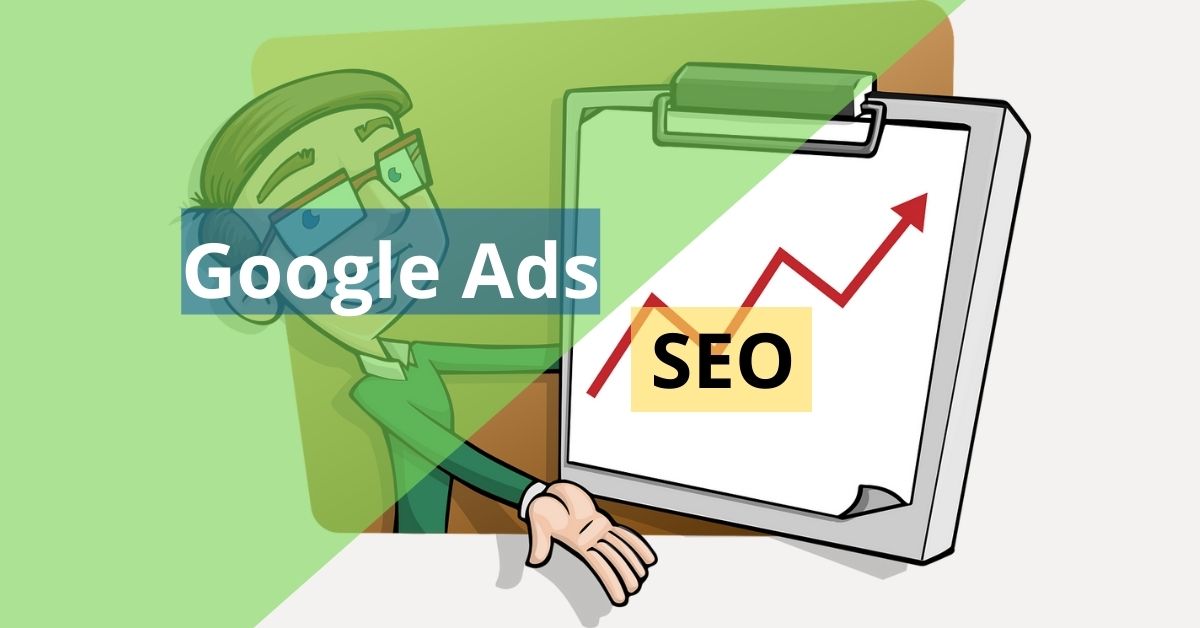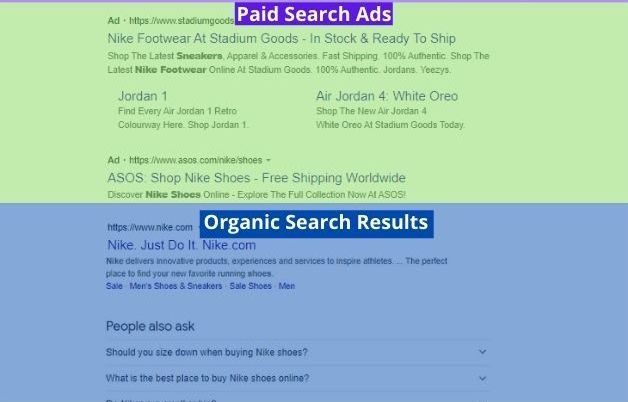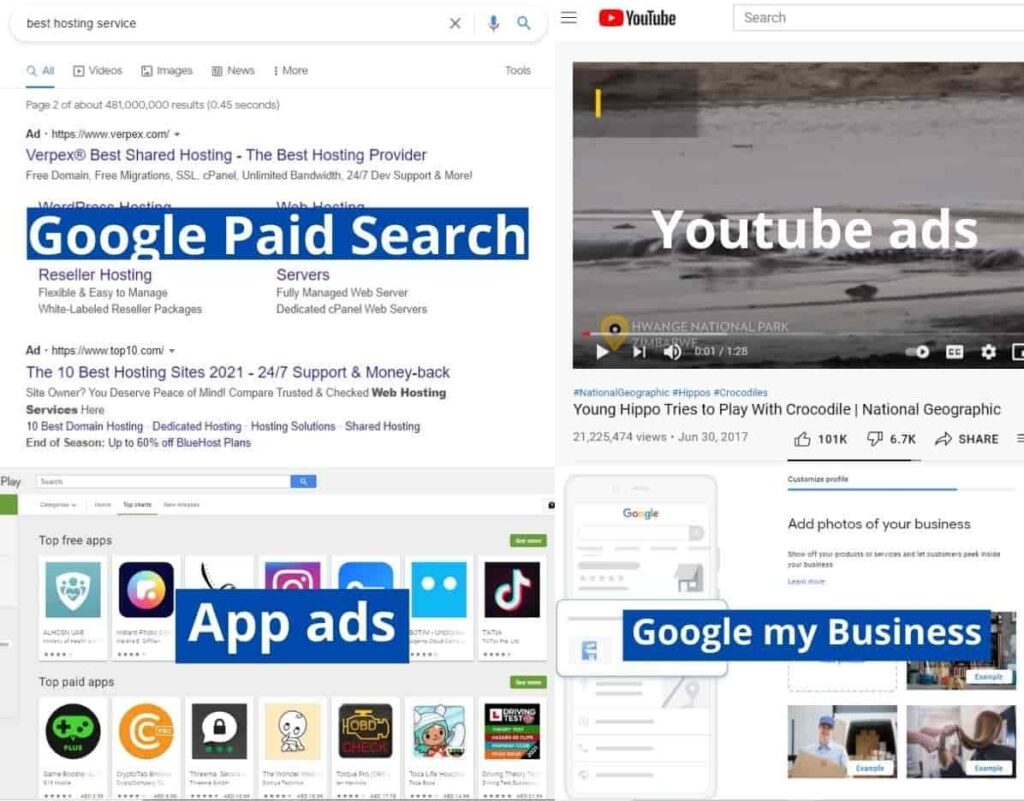Google Ads vs. SEO – Which Could be Better for Your Brand

It’s a familiar dilemma among new website owners. What is the best way to get business from Google?
You have two main options. Either run an ad campaign via Google Ads or opt for Search Engine Optimization (SEO).
Google Ads and SEO are widely different ballgames that are largely independent of each other.
You can always have a two-pronged strategy, including both SEO and PPC. As long as your budget permits it, investing in both can really maximize your outreach.
Nevertheless, webmasters usually prefer to focus on any one of them, at least until their efforts start to yield visible results.
Ultimately, the choice is yours, and here we want to help you make the best decision. Here is a head-to-head comparison of Google Ads and SEO.
1. Organic or paid
Your decision should boil down to your preference of getting search engine visibility.

Organic listings are those that don’t come with an “Ad” tag on the side when you type in specific keywords into the search box.
Google adheres to a complex algorithm that calculates hundreds of factors to determine the top ten sites for its first page.
SEO is the process of mastering this algorithm to gain a credible reputation with Google. A lot of it depends on the quality of content on your website, but there are other factors as well.
Getting a mention on the first page is incredibly competitive, but not impossible. However, you do not have to pay Google anything for it. The search engine explicitly forbids a paid model for organic listings because it can compromise the quality of results.
In Google Ads, you pay the search engine to be visible. But, it’s not so simple as simply paying and forgetting about it. PPC follows a bid-based auction process that you need to familiarize yourself with.
2. Separate policies
Google keeps its PPC and SEO aspects separated by strict guardrails. Even when you start getting traffic from paid search, it does not affect the rank of your site on organic listings.
Both depend on keywords, but the methods of putting them to use are different. It is better that you specialize in the method you are adapting. PPC requires a set of unique skills, and so does SEO.
3. Keyword targeting
The use of keywords in SEO is noticeably fewer. It starts with researching your target audience to find which words are more relevant for the search.
The optimization process mainly involves placing these words strategically within the content. You cannot spam it overusing keywords to improve your site indexing.
You will also have to place keywords into meta descriptions, title tags, site URLs, and header tags.
Google Ads permits a more nuanced, and detailed approach to keywords. Do note that you can use the Google Keyword tool to plan your keyword strategy for both PPC and SEO.
- In Google Ads, you can specify a wide range of keywords that should generate an ad impression.
- You can also specify a list of negative keywords. These are those which should not generate an ad impression.
- You can use keyword matching options in the campaign settings. Three options are available, broad match, phrase match, and exact match. Matching helps Google to understand how do you want to use your keywords.
4. Significance of content
You cannot possibly buy your visibility (with Google Ads) when you do not have a good website to go by. Herein is the importance of content.
Google Ads assigns a quality score in the range of 1 to 10. This score assesses the relevance and overall standard of your ad. The assessment criteria also include your landing page, which should be able to add value to the user’s search intent.

SEO also largely depends on creating quality content. Text content is the most widely used format, but you also have images, infographics, and videos.
The basic rule still stands. The content must be credible and offer value to the user’s search intent.
5. Depends on your approach
Your choice between PPC and SEO essentially depends on your approach to online promotions.
For example, you have a local business, and you are looking for fast results. Google Ads can be a better option because you can enlist local businesses with extensions such as addresses and phone numbers.
Again, you may be keen on developing a long-term strategy for your website. You want to focus on improving your organic ranking, even it may take a while. In that case, SEO should be the obvious option for you.
6. The trust factor
Some webmasters seem to think that organic listings appear to be more trustworthy to consumers. Listings with an “Ad” tag on the side are supposedly less likely to get a click than the ones listed via SEO.
This viewpoint probably originated from those days when unreliable ad pop-ups were a common thing in the online domain. A lot has changed since then.
Google has been consistent in ensuring the quality of ads, effectively forbidding false claims and dubious sites. Paid ads are presented in a reliable format and are equally likely to generate a positive response from users.
7. Managing your budget
You set a budget cap on your Google Ads campaign and can change it anytime you want. You also decide your bid amount and the mode of PPC. There are three options.
- CPC (Cost per Click)
- CPA (Cost per Acquisition)
- CPM (This refers to the cost per thousand impressions or Cost per Mille)
You will also take into account factors such as conversion rate (CVR) and click-through rate (CTR). Not everyone, coming across your ad, will click on it. Not everyone who clicks it will make a purchase. But, you will still have to pay for clicks and visibility.
SEO does not require paying anything to Google. You have a host of other expenses, though.
Creating content, ongoing SEO, and site maintenance all require constant spending. You will probably work with a good SEO expert, which will also cost you a set amount.
8. Viewer outreach
The outreach of SEO is within the SERPs of Google, more, specifically the first page. Only a handful of users bother to look at the second page of search results.
Google Ads can help you get a prime position on the first page. It also includes the advantage of displaying your image-based ads across the Google Display Network. In addition, YouTube and Gmail are also used to display ads.

9. Time taken to show results
If you want fast results, try Google Ads. There is no shortcut to SEO, and it is going to take a few months to get into the visibility zone.
By using a clever bidding strategy and maintaining a good quality score, it is relatively faster to get visible via Google Ads.
10. Different strategies
The strategies for SEO and PPC are largely different.
In SEO, you will have to focus on things like link building and Social Media Marketing, which are irrelevant in Google Ads.
Instead, there you will have to set your ad format and campaign type to go well with the keywords used. Besides, you can add user reviews and ratings on Google Ads, which is not possible with SEO.
Conclusion
Both Google Ads and SEO are the same in one basic aspect. They are backed by the guarantee of a search engine that registers billions of queries every month.
Ultimately, you are the best judge on what should work best according to your business objectives. You can even opt for a simultaneous campaign with both Google Ads and SEO if it fits your bill.
Now, it is your turn, which marketing strategies do you think can be the best fit for your brand?
If it is Google ads, I can help you with that. Just contact me and see your business grow with the power of paid campaigns…

